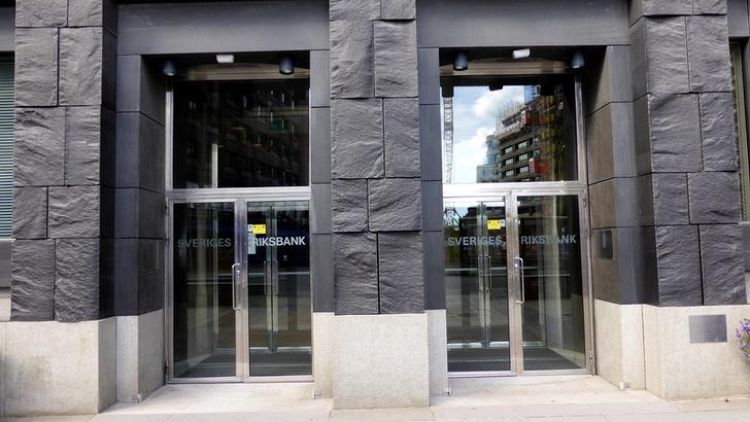By Steven Scheer
JERUSALEM (Reuters) - Martin Floden, a deputy governor at Sweden's central bank, said it was too soon to decide whether he would vote again for a rate hike in December but argued higher rates were needed given rising inflation and to boost the bank's credibility with markets.
"My assessment is that inflation is sufficiently high and the forecast is clearly that inflation will remain rather high for some time to come," Floden told Reuters on the sidelines of a Bank of Israel conference in Jerusalem on Sunday.
Floden was one of two Riksbank policymakers who voted to raise rates last month, although the other four voted to hold the benchmark rate at -.50 percent, where it has stood since early 2016.
Sweden's central bank will wait until the last moment before choosing either December or February to raise interest rates for the first time in more than seven years, minutes of its last policy meeting showed on Friday.
"The forecast for the repo rate is the same as in September and indicates that the repo rate will be raised by 0.25 percentage points either in December or February," the central bank said in a statement on Oct. 24.
Floden said that while he supported a rate hike in October the Riksbank will likely not deviate much from the European Central Bank's (ECB) policy actions.
"My view is that we could take this first step that I argued for in October to raise the rates once and we would have a slightly higher policy rate than the euro zone and then we would have to cautiously and carefully evaluate every possible step after that," he said.
"Our plan is that the process for raising interest rates going forward will be very gradual as it looks today. The forecast is that we will not deviate a lot from what the ECB is doing."
He added that while a very expansionary monetary policy was important for the economy, growth is now healthy and the level of rates was too low.
"It is possible now to raise the rate without having too big a risk of falling back into the historical problems that we faced some years ago," Floden said. "And I think the majority view is rather similar. But, they don’t have the same confidence as I have."
(Reporting by Steven Scheer; Editing by Adrian Croft)



